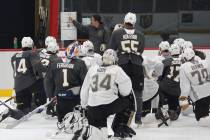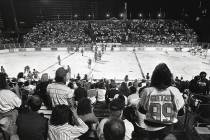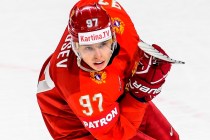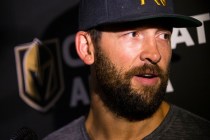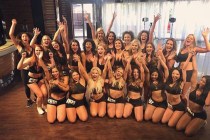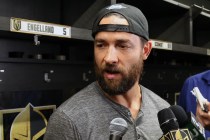Golden Knights might give big boost to youth hockey
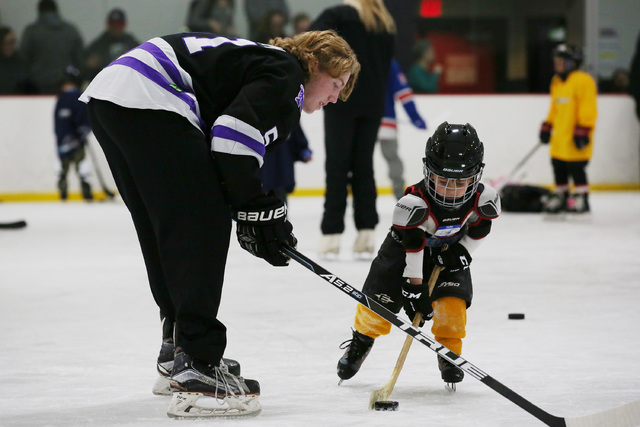
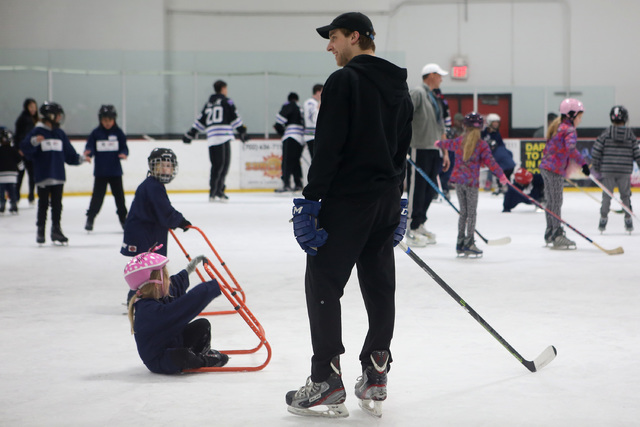
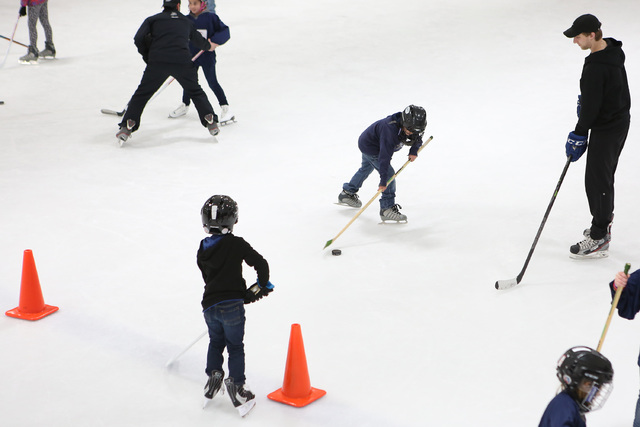
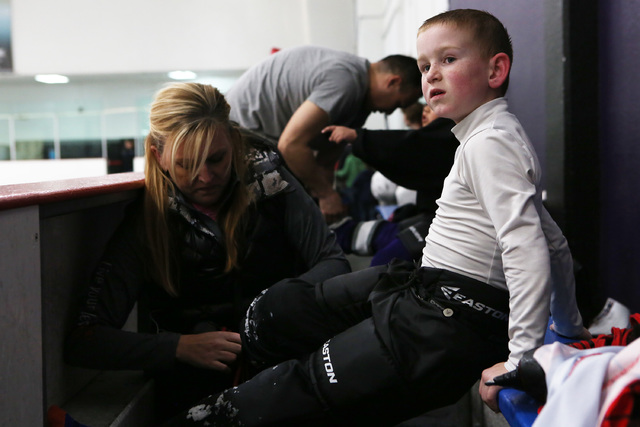
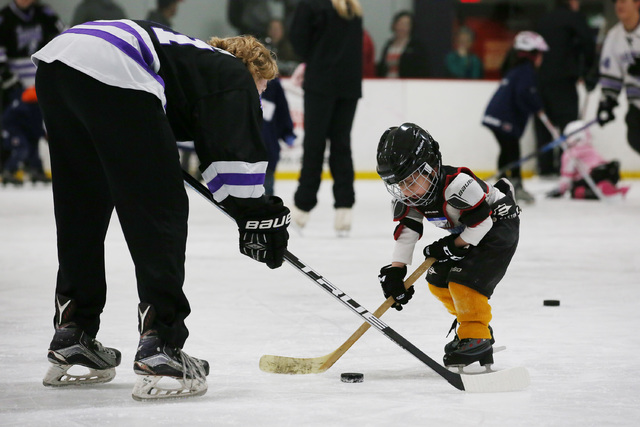
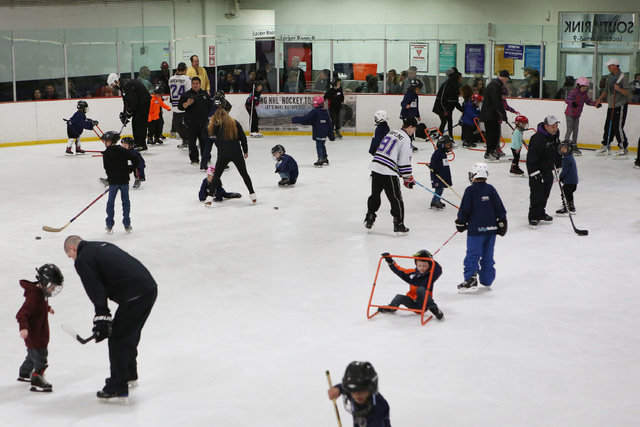

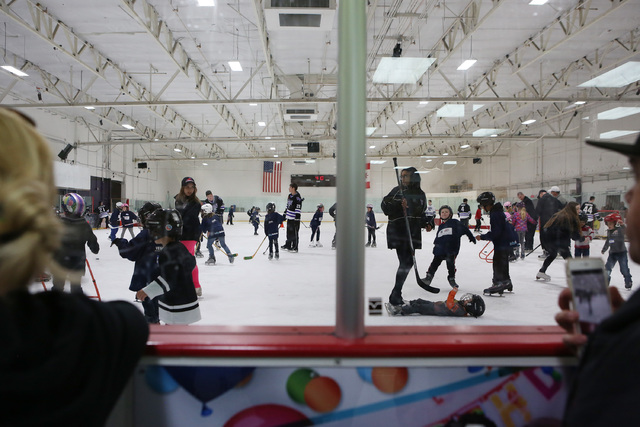
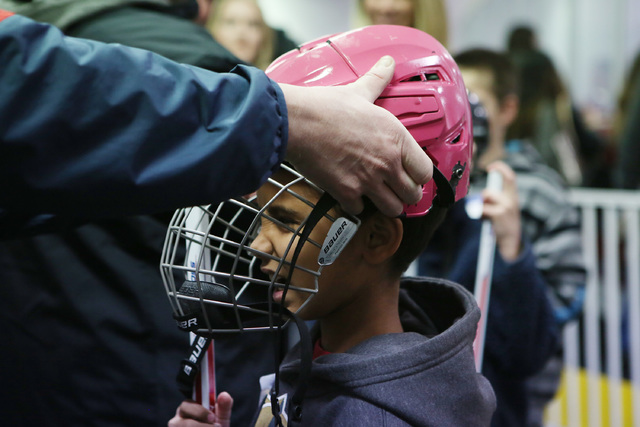


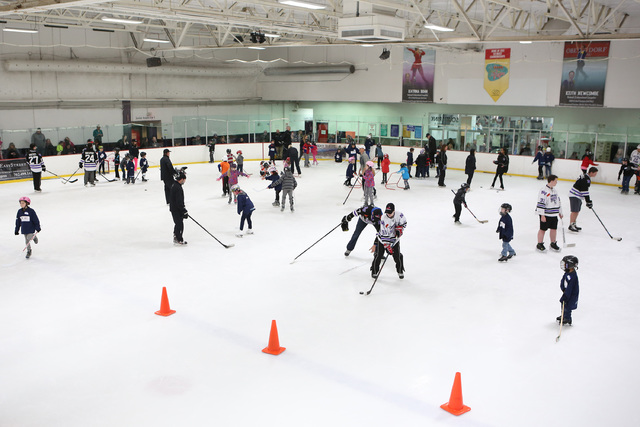
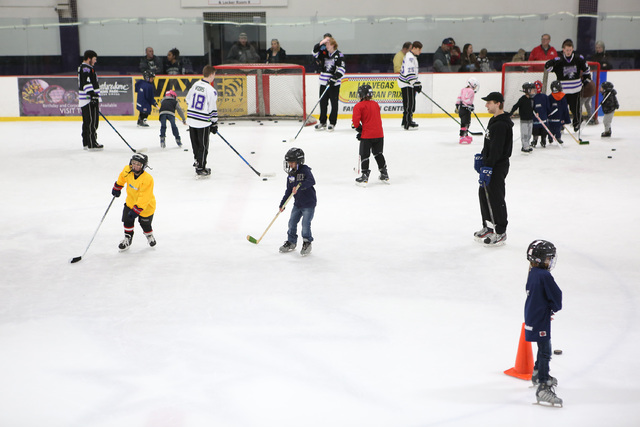
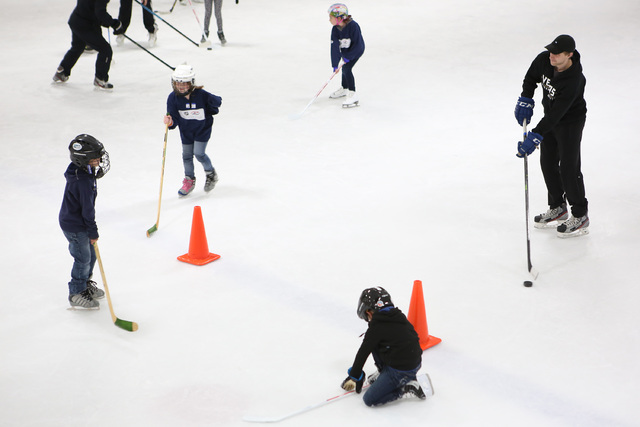
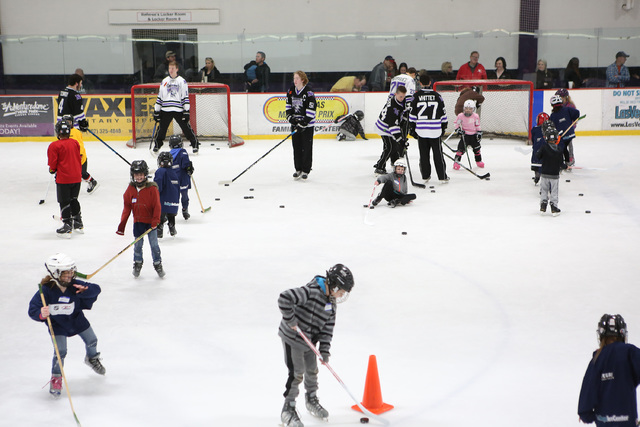
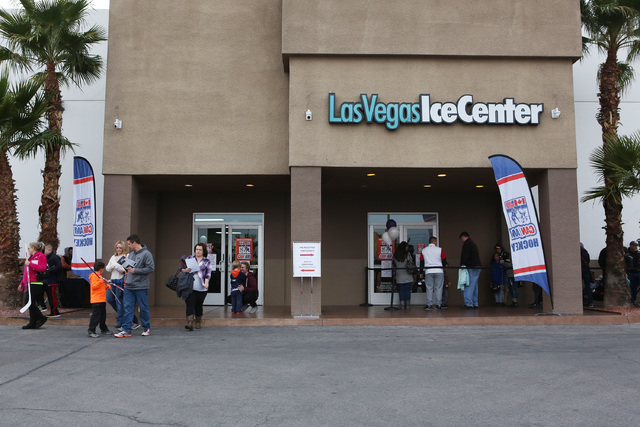
It starts with a wobble, followed by a fall.
You get up and catch up with the others. Once you realize falling doesn’t hurt because you’ve got all this weird gear on you, it becomes fun. As you get older and become more skilled, you begin to dream. It’s still fun, because that’s why you got up at 4 a.m. in the first place to make it to your 6 a.m. practice session as your parents drank lousy coffee from a Styrofoam cup.
For a fortunate few, it can become a path to a college scholarship. For even fewer, it could lead to a chance to play in the National Hockey League.
Youth hockey is an important component to the 30 current NHL teams. Not only does it help promote the sport, but it also identifies and
cultivates the next generation of season-ticket buyers, the lifeblood of every professional sports team.
According to figures from USA Hockey, there were 364,489 registered youth hockey players nationwide in 2016. In Nevada, there are only 1,342 — including just 60 girls. And if you’re the Vegas Golden Knights, that number needs to increase five-fold in the years to come.
The Golden Knights begin play in October. And if they’re looking for a blueprint to succeed, they need look no further than the Arizona Coyotes, Los Angeles Kings or Anaheim Ducks. Youth hockey is thriving under the banner of those NHL franchises for a variety of reasons.
“There’s no one right way to get there,” said Kelly Cheeseman, the chief operating officer of the Kings, who oversees the club’s youth hockey development program.
THE KINGS’ WAY
The Kings are celebrating their 50th season in the NHL. There has been some form of youth hockey since 1967, but the team didn’t begin seriously committing resources there until the 1980s.
Today, the Kings have a stake or outright ownership in 19 rinks. Approximately 1,200 kids join the Lil’ Kings program every year, and the team keeps leagues affordable — about $700 a year.
The Kings were also one of the first NHL teams to participate in the “Learn To Play” program, which is designed for boys and girls ages 4 through 8 who have never played hockey. Youngsters are outfitted with skates, helmet, stick and all the necessary protective equipment at no cost. They are also able to participate in a minimum of four clinics taught by former NHL players and coaches.
The Kings tweaked that program, charging $125 instead of making it free. But participants are allowed to keep the equipment at the end of the sessions. In other cities, the equipment is returned to the team. The Kings also have six clinics instead of four.
“We want the kids to stay with it and grow with the game,” Cheeseman said.
The Kings have had success with their Jr. Kings travel teams, where the cost can climb from $7,000 to $10,000 a year. The coaches in most cases are former NHL players, and former NHLer Derek Armstrong helps oversee the coaching philosophy for all the age groups.
“It legitimizes the experience you’re having,” Cheeseman said.
The team’s latest venture is in high school hockey. The Kings have their own league, which includes 18 teams and stretches from Long Beach to Santa Barbara. Cheeseman, who grew up in Minnesota and played high school hockey, said his dream is to have a state championship at Staples Center.
“Obviously, it’s going to take time,” he said. “But I think we’ll get there.”
For now, business is booming. According to statistics supplied by the Kings, the team’s recent success — it won the Stanley Cup in 2012 and 2014 — has increased youth participation throughout Southern California by 31 percent (from 4,314 players in 2013 to 5,650 in 2015).
“Our philosophy is there’s a place for any kid who wants to play,” Cheeseman said. “There’s 15 million people in this town, and the only way to make it work is to be fully vested in the community and allow the community to be part of you.”
DUCKS’ DIFFERENT ROUTE
In Orange County, the Anaheim Ducks also have found a way to grow youth hockey. But they invested their money differently.
They bought virtually every rink in the area, including some in disrepair, and re-branded them “The Rinks.” The move helped control costs and make youth hockey affordable.
“We were able to make inroads once we had control,” said Art Trottier, vice president of The Rinks and the administrator of the Ducks’ youth program.
Last month, the team broke ground on a four-sheet, $100 million complex in Irvine set to open in late 2018. There are currently seven ice sheets under the team’s umbrella.
“We had to turn a lot of kids away because we didn’t have room for them,” Trottier said. “That won’t be a problem once our Irvine facility opens.”
Seven years ago, the Ducks saw they were losing kids from their youth program once they reached high school age. So they started their own high school league with one school. Today, 40 teams play in the Ducks’ high school league, including one from Las Vegas.
“We thought, by having the high schools participate, we could keep the kids from going to other sports,” Trottier said. “It’s been a great relationship so far.”
Like the Kings, the Ducks tap former NHL players to help coach teams and run clinics.
The team also has roller hockey and street hockey programs. But it’s on the ice where the results are the most noticeable.
“Kids seem to want to go right to the ice,” Trottier said. “And that’s fine. We want to make sure we have a spot for any kid who wants to play.”
RAISING ARIZONA
When the Toronto Maple Leafs selected Auston Matthews with the No. 1 overall pick in last June’s NHL Entry Draft, the spotlight shined on Scottsdale, Arizona. It was where Matthews grew up and learned how to play hockey.
And while the Arizona Coyotes can’t claim 100 percent responsibility for Matthews’ development, the fact they existed was cause for Matthews to take up the sport. He attended Coyotes home games as a youngster and began playing.
Since moving from Winnipeg in 1996, the Coyotes have tried to grow the game at the grassroots level. Unlike the Kings and the Ducks, the Coyotes don’t own their own rinks. When it comes to youth hockey, they don’t own their own program.
“We have a partnership with all the rinks, and we have six different organizations that we work with,” said Matt Shott, the team’s director of amateur hockey development. “But we have programs that we support.”
One is the Lil’ Howlers, the team’s Learn To Play program, which drew 200 kids this year. Another is the high school league, which stretches from Tucson to Flagstaff and has 28 teams.
Without their own facility, the Coyotes can’t brand their own programs. Mike DeAngelis, who helps run the Junior Coyotes program that is not affiliated with the NHL team, said it’s not an ideal situation.
“We work with them,” he said. “They advertise for our program, and they put on free clinics and make player appearances. They’ve done a good job of growing the game here.”
Shott said one successful program the Coyotes have used is called “Practice Crashes.” The NHL team will send one of its players to a youth team practice unannounced and put on a mini-clinic for that team.
“You should see the looks on the faces of the kids when they see one of our players show up,” Shott said.
Coyotes captain Shane Doan, who has been with the team during its 20-year run in Arizona and has a son playing youth hockey, said he likes the direction the sport is going as far as getting boys and girls involved.
“It’s about having fun at that age, and the leagues here do a good job of making it fun for the kids,” Doan said. “As players, we feel it’s important to give back to the game, and anytime we can do something to promote youth hockey and help grow that next generation of fans, that’s a good thing.”
All three NHL cities wobbled at first with their youth hockey programs. Today, they are a symbol of what can be accomplished with some effort and a willingness to reach into their respective communities.
“I’m very envious of Vegas,” Shott said. “They get to see what the other teams do for youth hockey and take the best from each. They should have great success in growing the game there.”
Contact Steve Carp at scarp@reviewjournal.com or 702-387-2913. Follow @stevecarprj on Twitter.
RELATED
Foley aims to make valley schools foundation of youth interest
Las Vegas woman starts nonprofit to help parents handle youth hockey costs
Las Vegas high school players form a Storm on ice
Las Vegas’ best female hockey players leave town to play
YOUTH HOCKEY IN NONTRADITIONAL MARKETS
The following breakdown shows the number of teams and players involved in youth and high school hockey in what are considered non-traditional hockey markets of Los Angeles, Anaheim and Phoenix compared to Las Vegas.
LOS ANGELES KINGS
Rinks: 19
Youth/high school players: 2,874
High school teams: 18
NHL alumnus: Bobby Ryan (Ottawa Senators)
ANAHEIM DUCKS
Rinks: 7
Youth/high school players: 5,000
High school teams: 40
NHL alumnus: Matt Nieto (Colorado Avalanche)
ARIZONA COYOTES
Rinks: 6
Youth/high school players: 4,932
High school teams: 28
NHL alumnus: Auston Matthews (Toronto Maple Leafs)
VEGAS GOLDEN KNIGHTS
Rinks: 2
Youth/high School players: 1,342
High school teams: 1
NHL alumnus: Jason Zucker (Minnesota Wild)
SOURCES: USA Hockey, Los Angeles Kings, Anaheim Ducks, Arizona Coyotes
YOUTH HOCKEY GLOSSARY
A short list of terms or phrases you might hear in the youth hockey world:
“House league” — A development league, usually for beginners and novices run by a local hockey organization.
“Travel team” — A team for advanced players which travels to play tournaments and teams in other leagues.
“Mini-Mite” — A player age 6 or younger.
“Mite” — A player age 8 or younger.
“Squirt” — A player age 10 or younger.
“Pee-Wee” — A player age 12 or younger.
“Bantam” — A player age 14 or younger.
“Midget” — A player age 16 or younger.
“Junior” — A player age 20 or younger.
“Play up” — When a player moves up an age group to compete.
“Sheet” — The ice surface at the rink, which usually measures 200 by 85 feet. Some rinks have multiple sheets in their building.
“Registered player” — A player who is registered with USA Hockey, the sport’s governing body.



